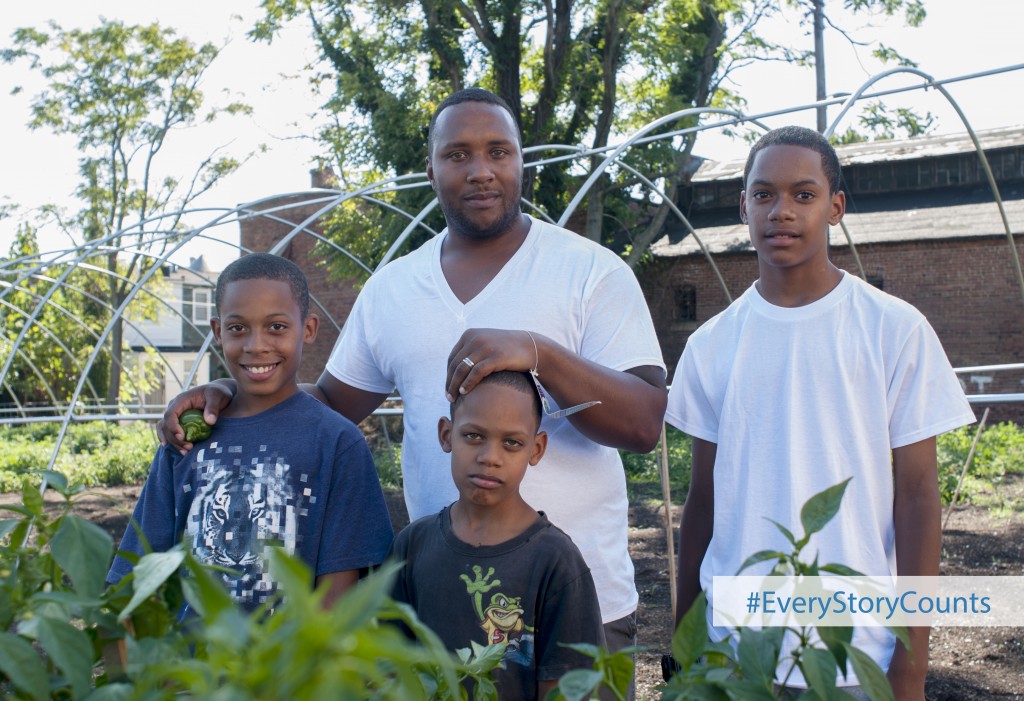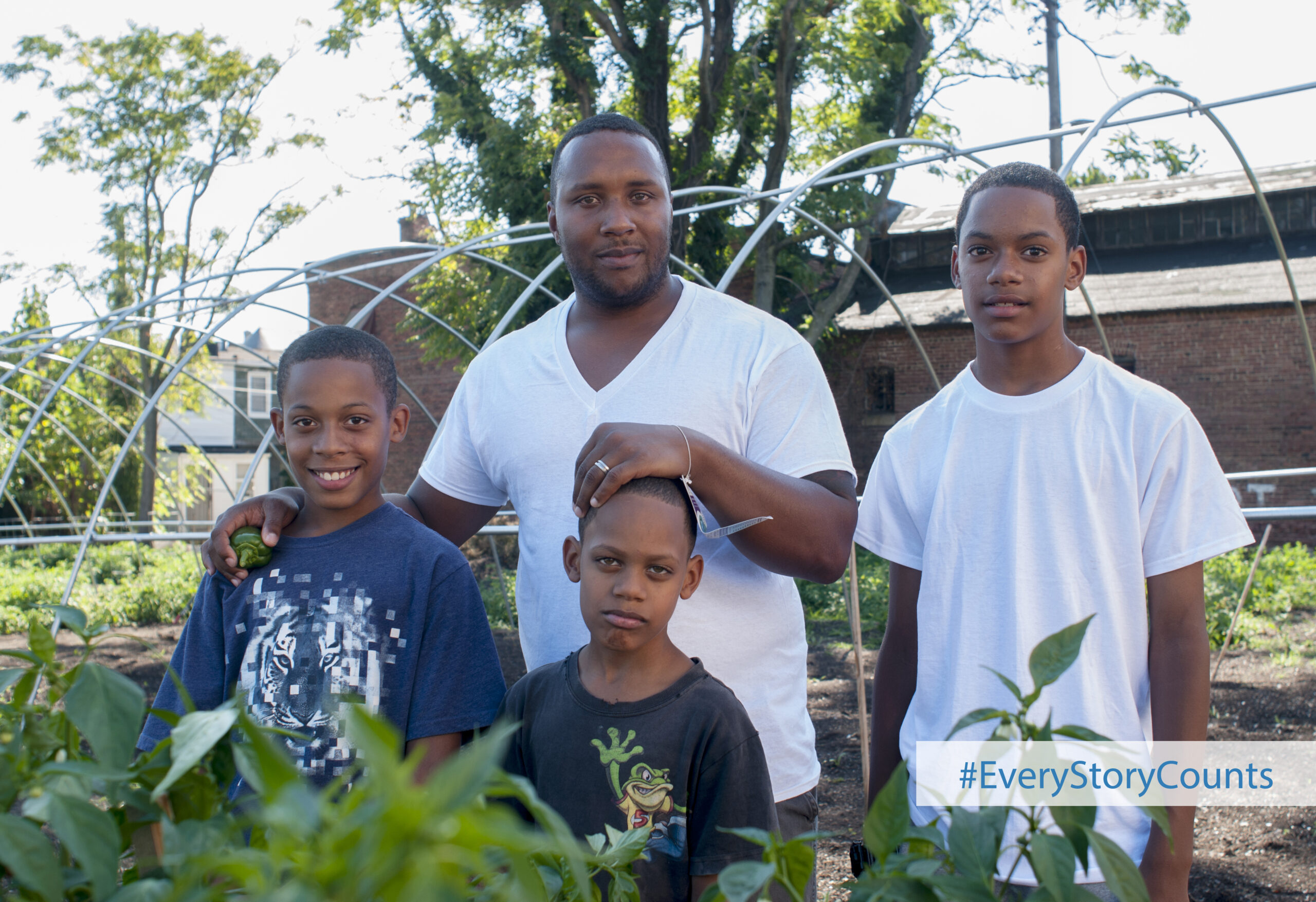
They kept coming by the farm, walking past looking to see what was going on. Then I asked if they want to work, and they showed up. They learned how to plant seeds, how to take the measuring tape and properly space them, how to rake up the weeds. They picked up on it all really quickly. Seeing them day after day, with so much work that needs to be done, and they were so inquisitive, they turned into my little sons. It’s taught me a lot about humility, about brotherhood.
When I started, no-one wanted to come here, never mind kids. The police didn’t come through here. We had murders; we had drugs — everything you can think of. I don’t even like gardens, but when that demo money came through to knock down the vacants and I’d been cheerleading for it, I knew this place was going to become my responsibility. So we got together and adopted these lots to educate the community on how their food grows.
Now, it’s different. Everyone talks about it. Earlier this year, we had hundred-pound pumpkins growing. People are just mystified that this can grow in a place where they’ve seen so much hate and violence. And these boys have become the block’s adopted kids. They get a lot of support and that’s the one thing they’re not going to see too many other places. It’s a lot of love that’s been given to them. I think it’s the reason why they keep coming back.
Earl Johnson is a community leader in the Oliver neighborhood and a founder of Bethel Street Farm (Photo by New Lens Productions).
Find out more about programs and resources you can work with to help empower youth, green communities, and grow healthy food.
The #EveryStoryCounts Campaign
You don’t have to be a climate scientist or city planner to create sustainability + resilience. Everyone has a story to tell about making Baltimore a stronger, fairer and safer place for all of us.
Be a part of our #EveryStoryCounts Campaign by sharing yours on social media using the hashtag #EveryStoryCounts, or by sharing your words and pictures with us at sustainability@baltimorecity.gov.

